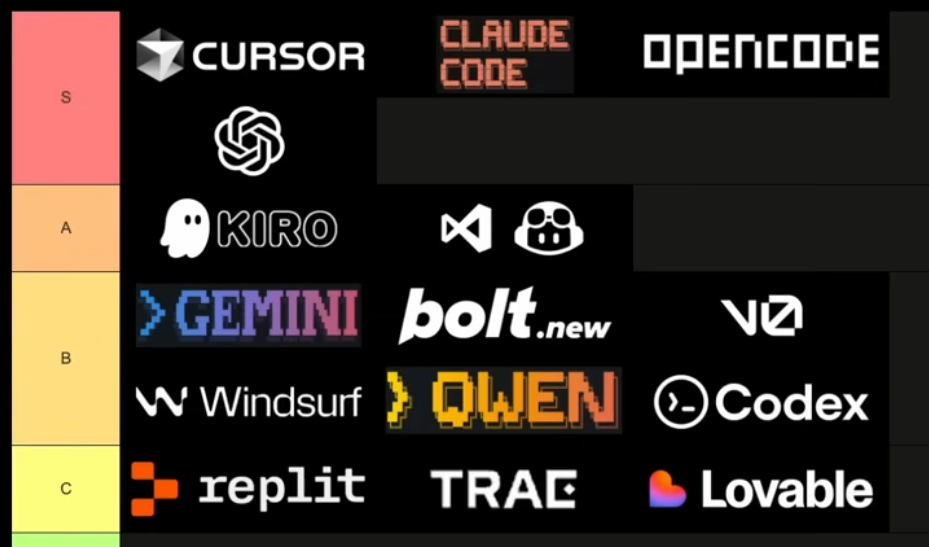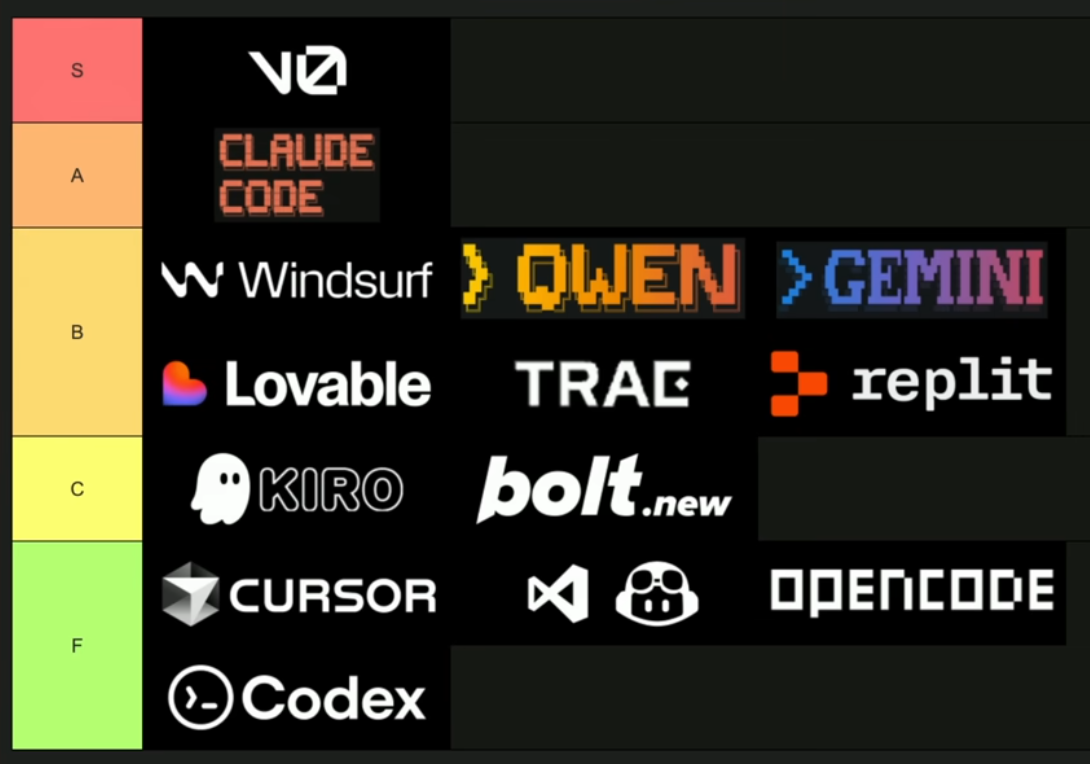Evaluating AI Assistants
https://www.youtube.com/watch?v=tCGju2JB5Fw
Three developers (Wes, Scott, and CJ) discuss and rank various tools, sharing their own experiences, evaluating interface usability, the quality of generated code, and the unique capabilities of each tool.
Services such as Replet and Lovable received specific criticism for their aggressive and sometimes opaque marketing strategy involving influencers. For serious development, CLI tools or IDEs are more suitable, while browser-based solutions are ideal for quick experiments.

Ultimately, Claude Code, Open Code, and ChatGPT received S-tier. Claude Code is praised for its ability to strictly follow instructions and plan work, Open Code — for its openness and the ability to use custom API keys, and ChatGPT remains indispensable for quick queries without the context of the entire project. Most other tools were rated as average — they are useful but do not offer unique advantages.
Vibe Coding Ranking
https://www.youtube.com/watch?v=ebacH8tdXug
This video is a humorous response to the previous one, and the author immediately warns that his ranking should not be taken seriously. Theo examines tools not by technical capabilities but by so-called "vibe coding." The main priority is how much it allows you to create something without looking at the code or understanding technical details.
The author jokes that "true vibe coders" avoid seeing code. Therefore, Cursor, VS Code Copilot, Open Code, and Codex receive the lowest rating because they are assistants for real developers who require active participation, writing, and reviewing code. They destroy the "vibe."

The highest rating was given to a platform that maximally abstracts from code, and that is V0 from Vercel — it has a simple interface, replaces technical terms (e.g., "fork" with "duplicate"), and offers powerful integrations that can be configured with a few clicks without any knowledge of APIs.
Surprisingly, Claude Code received an A-tier for its ability to perform tasks autonomously, hiding the technical implementation from the user.
#claudecode #opencode #cursor #vibecoding #vercelv0